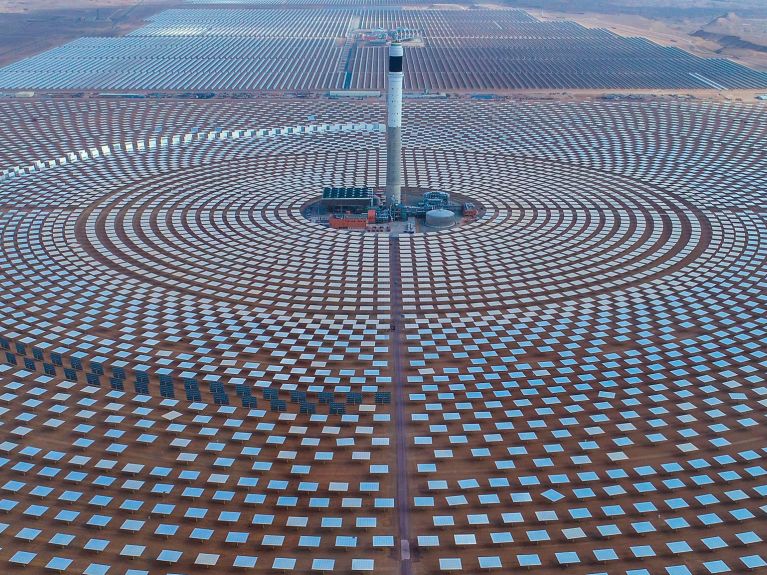Climate protection made in Germany
Campaigning for increased climate protection: climate expert Falko Ueckerdt explains Germany’s role in the international struggle against climate change.

German policy is bound by the values laid down in the Basic Law. Germany also upholds these values internationally. At the Paris climate conference in 2015 the heads of state and government of 150 countries adopted the goal of limiting global warming to less than two degrees Celsius. Falko Ueckerdt, who heads the National Energy Transitions team at the Potsdam Institute for Climate Impact Research (PIK), explains what role Germany plays in achieving climate goals.

How would the global economy need to change to ensure we do not exceed the two-degree limitHerr Ueckerdt,?
Global CO2 emissions would have to fall to zero, achieving so-called carbon neutrality, by roughly 2070 at the latest to keep global warming below the two degrees Celsius mark. If you distribute the remaining CO2 budget – in other words, the entire volume of emissions still permitted – equally per head of the world population, then as a result of their higher per capita CO2 emissions the industrialised countries would already have to become “climate-neutral” by roughly 2050.
Dieses YouTube-Video kann in einem neuen Tab abgespielt werden
YouTube öffnenThird party content
We use YouTube to embed content that may collect data about your activity. Please review the details and accept the service to see this content.
Open consent formWhich role does Germany play in achieving the international climate objectives?
The energy transition in Germany and the EU can, at least partially, act as an international model. The first phase of this experiment has been fairly successful. Germany has proved that a large industrialized country can significantly transform the power supply within 15 years. This has paved the way for solar and wind energy on a global scale.
The second phase of the experiment will admittedly be more difficult. Germany is aiming to be climate-neutral by 2050 at the latest. For the electricity sector this means the continued expansion of renewable energy and a rapid phase-out of the remaining electricity production using coal and natural gas. But this still only accounts for about one third of greenhouse gas emissions. The remainder will need ongoing, serious and swift climate protection measures in transportation, building technologies, industry and agriculture.
Germany plays a key role at the EU level and has actively supported achieving the agreed goal of EU-wide climate neutrality by 2050.” Falko Ueckerdt
How do you assess German support for increased climate protection within the EU?
Germany plays a key role at the EU level and has actively supported achieving the agreed goal of EU-wide climate neutrality by 2050. Currently Germany is campaigning to raise the 2030 climate goal to an at least 55% reduction in greenhouse gas emissions (compared to the level in 1990). The raising of the EU goal means Germany will increase its own 2030 reduction target in such a way that it will probably exceed the EU-wide goal.
And how is Germany supporting this internationally?
Germany supports global technology transfer by increasingly linking industrial policy and climate policy. In particular, innovative electrification technologies are likely to become key technologies worldwide. Electrification here involves the use of renewable electricity in the sectors transport, buildings and industry as well as the digital control of this integrated energy approach. This includes electric vehicles, heat pumps, electric ovens and heating systems for industrial processes as well as hydrogen and synthetic fuels. During the transition to global climate neutrality economic opportunities and new sales markets will arise especially for those countries and companies that were the first to take climate protection seriously.
You would like to receive regular information about Germany? Subscribe here:



